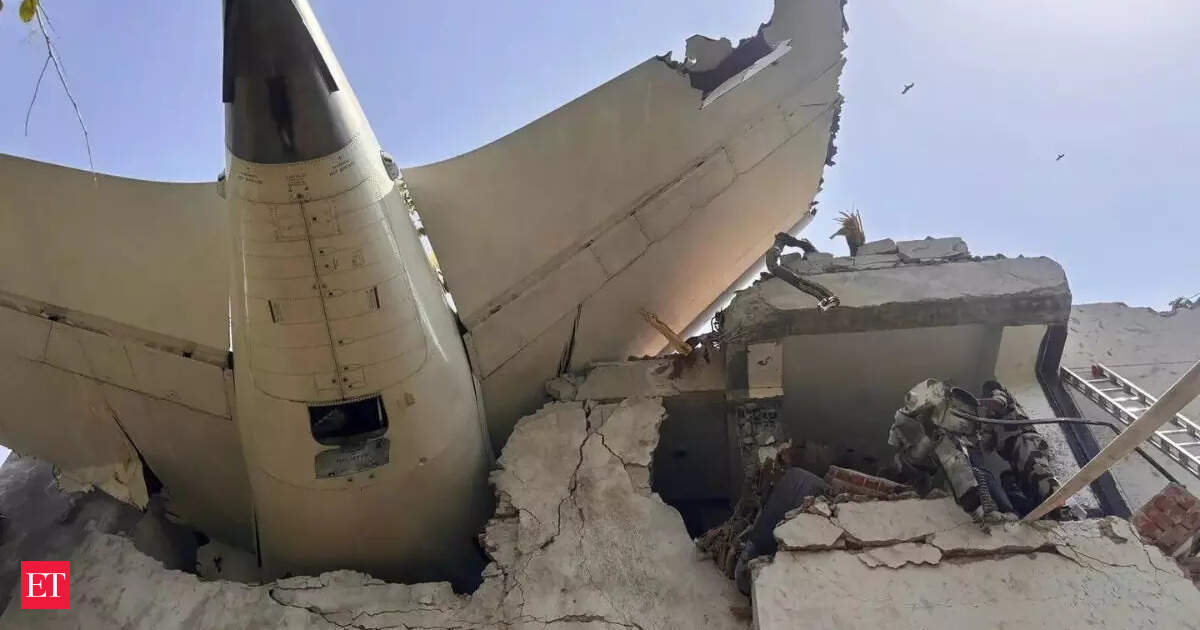Mumbai: Last month’s plane crash in Ahmedabad has made fliers nervous. “After a tragedy like this, fear of flying naturally spikes,” said Shefali Batra, a leading Mumbai-based psychiatrist. While investigations continue into whether pilot error or a mechanical fault with the Air India Boeing 787 Dreamliner plane was to blame for the accident that killed 260 people, what’s undeniable is the psychological fallout-a surge of flight anxiety, even among seasoned travellers.
A series of flight incidents associated with Air India and other airlines since the June 12 crash has added to their woes.
Mental health professionals say the emotional aftershocks of the Air India crash are real and spreading, triggered by increased access to social media content. “Social media exposure to aviation disasters is amplifying anxiety,” said Anjali Chhabria, a Mumbai-based psychiatrist.
“Even if someone hasn’t experienced trauma personally, the constant stream of bad news creates a sense of danger.” K Dinesh, founder, Cockpit Vista, and a retired Indian Air Force wing commander, has seen it all-CEOs gripping books like life jackets, elderly couples haunted by decades-old trauma, and passengers frozen at boarding gates. Some drown the fear in music or medication, others, in alcohol.
“Bars near boarding gates aren’t just for leisure. Some passengers knock back four or five pegs just to get on board.”
 Live Events
Live Events


Psychologists say the fear is more pronounced among high-calibre travellers like engineers, entrepreneurs, and scientists, who are accustomed to always being in charge.
Degrees of phobiaFrom CEOs gripping books like life jackets, elderly couples haunted by decades-old trauma, and flyers frozen at boarding gates: some drown the fear in music or medication, others, in booze. “Bars near boarding gates aren’t just for leisure. Some passengers knock back four or five pegs just to get on board.”
Psychologists say the fear is heightened among high-calibre travellers who’re used to being in charge, like engineers, scientists, and entrepreneurs. “Flying forces them to surrender — to an unseen pilot in a sealed cockpit,” said K Dinesh of a Bengaluru-based counselling centre for fearful flyers which has seen a marked rise in inquiries after the Air India crash. Using flight simulators, it recreates take-offs, landings, turbulence, and cabin sounds in a controlled setting. He said, “By the course’s end, most begin to regain confidence.”
In a typical 180-seater aircraft, nearly 30-40% of passengers are silently battling some form of anxiety or phobia of varying degrees — a figure that aligns with global aviation data.The fear often it permeates those with deep knowledge and analytical minds, said aviation experts.
